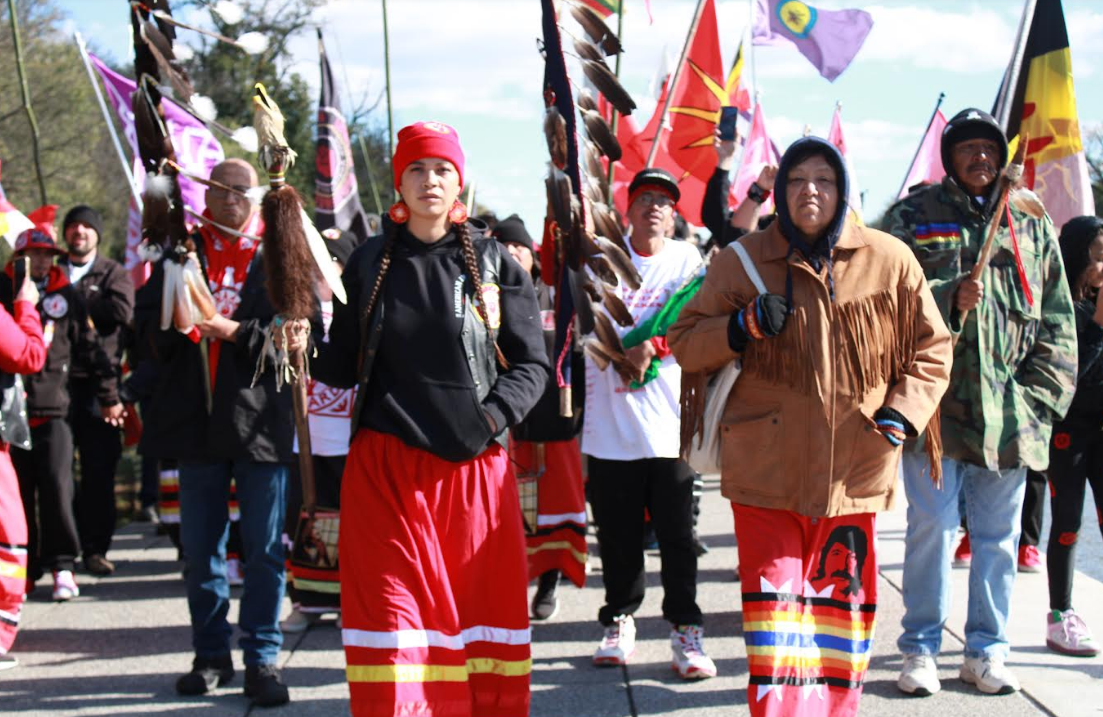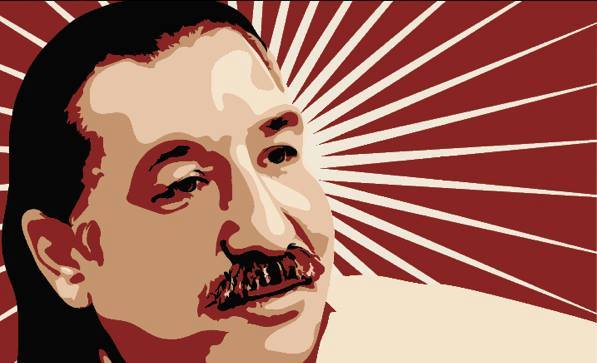
- Details
- By Levi Rickert
Seven U.S. senators on Friday sent a letter to U.S. Attorney General Merrick Garland urged him to allow for the compassionate release of American Indian Movement (AIM) rights activists Leonard Peltier (Turtle Mountain Band of Chippewa Indians).
Led by U.S. Senator Brian Schatz (D-Hawai‘i), chairman of the Senate Committee on Indian Affairs, the letter was also signed by U.S. Senators Mazie Hirono (D-Hawai’i), Edward Markey (D-Mass.), Bernie Sanders (I-Vt.), Tina Smith (D-Minn.), Elizabeth Warren (D-Mass.), and Peter Welch (D- Vt.).
“Mr. Peltier, who has been imprisoned for the past 49 years and is suffering from severe health conditions, should be able to return home and live out his remaining days among his own people,” the senators wrote in the letter to Attorney General Garland. “It is time that the federal government rectifies the grave injustice of Mr. Peltier’s continued imprisonment, and strongly urge you to allow for his compassionate release.”

Peltier was convicted and sentenced to two life sentences in 1977 for the murders of Federal Bureau of Investigation (FBI) agents Ronald Williams and Jack Coler. The agents were killed on June 26, 1975 during a confrontation with members of the American Indian Movement (AIM) on the Pine Ridge Indian reservation in 1975.
His conviction followed a trial marked by procedural errors and a lack of evidence. As the authors note, “Over the course of his incarceration, particularly in recent years, key figures involved in Mr. Peltier’s prosecution have stepped forward to underscore the constitutional violations and prosecutorial misconduct that took place during the investigation and trial that led to his conviction.”
Civil rights leaders across America and around the world, from Nelson Mandela to the Dalai Lama to Rev. Jesse Jackson, have condemned the verdict as a miscarriage of justice—a miscarriage all too familiar to Indigenous peoples and marginalized communities.
The letter cited Peltier’s 49 years of imprisonment and the severe health issues as reasons for the compassionate plea. The letter says Peltier should be able to return home and live out his remaining days among his own people.
Peltier is currently imprisoned at Coleman Federal Correction Complex in Coleman, Florida.
The senators wrote in part:
“The Bureau of Prisons (BOP) procedures allow its Director to grant a reduction in sentence, or compassionate release, to prisoners that meet certain criteria, including advanced age and deteriorating health; Mr. Peltier is nearly 80 years old and suffers from numerous health conditions, including a potentially fatal abdominal aortic aneurysm. If the Director of the BOP approves a compassionate release, and the Parole Commission agrees, Mr. Peltier could be released immediately.”
The full letter is also available here.
More Stories Like This
Native News Weekly (August 25, 2024): D.C. BriefsUS Presidents in Their Own Words Concerning American Indians
Indigenous Actor Elaine Miles Reports Detention by Alleged ICE Agents
Happy Thanksgiving from Native News Online
Coming Up on Native Bidaské: Behind the Animation: Joey Clift Talks “Pow” and Native Storytelling
Help us tell the stories that could save Native languages and food traditions
At a critical moment for Indian Country, Native News Online is embarking on our most ambitious reporting project yet: "Cultivating Culture," a three-year investigation into two forces shaping Native community survival—food sovereignty and language revitalization.
The devastating impact of COVID-19 accelerated the loss of Native elders and with them, irreplaceable cultural knowledge. Yet across tribal communities, innovative leaders are fighting back, reclaiming traditional food systems and breathing new life into Native languages. These aren't just cultural preservation efforts—they're powerful pathways to community health, healing, and resilience.
Our dedicated reporting team will spend three years documenting these stories through on-the-ground reporting in 18 tribal communities, producing over 200 in-depth stories, 18 podcast episodes, and multimedia content that amplifies Indigenous voices. We'll show policymakers, funders, and allies how cultural restoration directly impacts physical and mental wellness while celebrating successful models of sovereignty and self-determination.
This isn't corporate media parachuting into Indian Country for a quick story. This is sustained, relationship-based journalism by Native reporters who understand these communities. It's "Warrior Journalism"—fearless reporting that serves the 5.5 million readers who depend on us for news that mainstream media often ignores.
We need your help right now. While we've secured partial funding, we're still $450,000 short of our three-year budget. Our immediate goal is $25,000 this month to keep this critical work moving forward—funding reporter salaries, travel to remote communities, photography, and the deep reporting these stories deserve.
Every dollar directly supports Indigenous journalists telling Indigenous stories. Whether it's $5 or $50, your contribution ensures these vital narratives of resilience, innovation, and hope don't disappear into silence.
 The stakes couldn't be higher. Native languages are being lost at an alarming rate. Food insecurity plagues many tribal communities. But solutions are emerging, and these stories need to be told.
The stakes couldn't be higher. Native languages are being lost at an alarming rate. Food insecurity plagues many tribal communities. But solutions are emerging, and these stories need to be told.
Support independent Native journalism. Fund the stories that matter.
Levi Rickert (Potawatomi), Editor & Publisher

